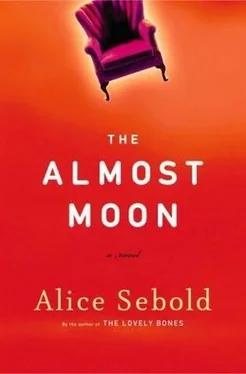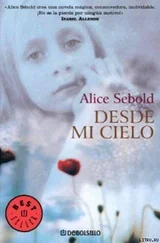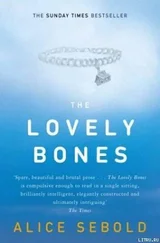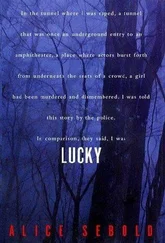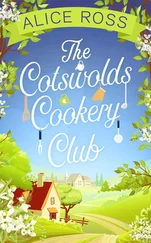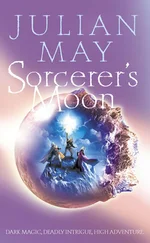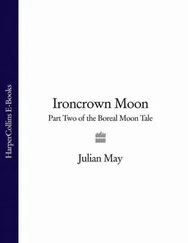I remembered calling home once from Wisconsin. Emily must have been almost four. My father answered the phone, and immediately I heard it.
“What’s wrong, Daddy?”
“Nothing to get upset about.”
“You sound strange. What is it?”
“I fell,” he said.
I could hear the grandfather clock in their living room-its deep choral chimes.
“Are you lying down?”
“I’ve got that old quilt on top of me, and your mother is doing her best. Here she is.”
I heard the receiver being fumbled, and I entered the anxious no-man’s-land over the wire while my mother came to get the phone.
“He’s fine,” she said immediately. “He’s just drugged up.”
“Can I talk to him again?”
“He’s a horrid conversationalist right now,” she said.
I asked my mother what exactly had happened.
“He tripped on the stairs. Tony Forrest came over and took him to the doctor. It’s his hip and those damn varicose veins. Tony says Edna St. Vincent Millay killed herself that way.”
“With varicose veins?”
“No, stairs. She fell down them.”
“Can I speak to him?”
“You should call later in the week. He’s resting now.”
I felt the distance of miles then. I tried to picture my father under the memory quilt, sleeping, as my mother bustled about the house, making meals out of dry cereal flakes and canned corn.
I was sweating in the closed-up house but too afraid to open a window. Too afraid another death rattle might escape my mother’s lungs and seep into the air and wake the women who, like my mother, lived alone and feared such things. The nighttime intruder who comes and kills you. The dutiful daughter who suddenly finds her hand on top of a towel on top of your face, smashing that face in, something inside her hammering over and over again with a child’s vendetta finally fulfilled.
I turned on the tap in the kitchen sink again. I waited for the water to heat. I saw the dishes from the early morning washed and put in the dish rack by Mrs. Castle and wondered what made her keep coming to a house like my mother’s to help an old woman as the days, then years, passed by.
The Castles had moved to the neighborhood when I was ten. Mrs. Castle became known as the handiest wife while her husband was considered the handsomest man. When the two of them would visit our house to take away the rocking horses for the church fair, my mother and father would sit in the living room with them, each of my parents happily distracted-my father with Mrs. Castle and my mother with Mr. Castle, or Alistair, as she called him, the last syllable when she pronounced it sounding wistful, as if his name were a synonym for regret.
I suddenly knew what I would do. I would clean my mother as I had intended to, but this time without the possibility of protest, without her eyes clicking open like an ancient baby doll’s, the starburst blue glass an instant indictment. I did not care anymore about the watery mess it might make on the floor. The critic was dead. Carpe diem!
I leaned down to my right and opened the old metal cabinet. Inside were enough saved-from-the-grocery plastic containers, with their bowed companion tops, to store the hearts and lungs of every citizen along Phoenixville Pike. But I was searching for something else. Something very specific in my memory. I burrowed in and tossed the plastic containers to the side and out the front until, in the very back, where no one had been in years, I found the saved-from-the-hospital sick bowl I was looking for.
It was a pale aqua-green, the color of the surgeon’s scrubs. Seeing it again sent shivers down my spine. “He almost died” was always the last line of the story told. It had taken me years to wonder why, if the story was about my father, my mother always ended up as the main character.
I filled the small container with near scalding water and squeezed in a little dish soap. If my mother was greasy, this soap promised to lift it right off her! I shut the water off, took the dish sponge and dish towel, and knelt to my task.
I would start at the bottom and work my way up.
I peeled off my mother’s blue men’s orthopedic anti-embolism socks and balled them up, resisting an urge to lob them over her body and through the small back hallway that led into the living room. With aim and enough upper-body strength, I could have landed them among the balls of yarn in the basket beside her wing chair. Instead, I placed them to the side, to be dealt with later.
There were her toes, delicate when exposed. I had seen them intimately now for years. Mrs. Castle couldn’t be asked to trim her toenails, and so, once a month on a Sunday, I arrived for the tasks of ancillary body maintenance, cleaning and trimming the places my mother had ceased being able to reach. Attending to her feet gave us a peculiar way to revisit the past, a repositioning in which I, by being silent, disappeared from the room, my whole body acting merely as her own hand had once acted. I painted her toenails a coral color from Revlon that, if not an exact match for the one she had applied once a week for forty years, was so close it drew no comment or objection.
I started with her feet by taking the dish towel and dipping it in the scalding water, wringing it out, and wrapping first one foot and then the other. Like a pedicurist, I worked one foot while the other was moistening. With the dish sponge-soft or rough side, depending-I scrubbed and buffed. On my mother’s legs I saw the veins I knew lived beneath my own skin and that had recently begun to peek out behind my knees and shins.
“You have murdered your mother, true, but we find her exceptionally clean!” I saw it being sung as if in a musical, where witches held up apples and swung on ropes by their necks.
“It’s a hard day, Helen,” my mother would say.
“It will be okay, sweetheart,” my father would say.
On the day my father died, I had arrived at the house to the sight of my mother cradling his head in her lap at the bottom of the stairs. In the weeks that followed, she talked over and over again about his varicose veins and how much pain they had caused him. How he was stiff in the mornings and often stumbled or tripped over the smallest wrinkle in the carpet. She repeated stories of his clumsiness over the phone to the grocer, who still delivered food to her, and to Joe, my father’s barber, whom she had called in a deluded moment after she’d called me. Joe had shown up shortly after I had, worried that my mother might be all alone. He had stood in the front doorway, his mouth open, unable to speak. When our eyes met, he lifted his hand up and accurately made the sign of the cross before turning to leave. Was it from respect or fear that Joe had never commented on the open cleft at the back of my father’s head or the arc of blood against the wall?
Slowly I worked my way up to my mother’s knees. “They smile at me,” Mr. Donnellson whispered to me once, delighted to catch a rare glimpse of my mother in shorts.
A few moments later, I was wiping the shit from my mother’s rubbery thighs when I thought of the night my father nailed, straight into a wall upstairs, a list of hastily written rules:
Keep the Upstairs Linen Closet Locked
Do Not Leave Matches in the House
Monitor Booze
It took me a moment, as I thought of the tussles my father and mother frequently had-her in her nightgown and my father still dressed in his workday clothes-to realize that someone was pounding on the front door. I froze. I listened to the brass knocker sound against its base.
I made no noise. I could feel the soapy water seep from the sponge and roll down my arm from wrist to elbow. The small splash of a drop back into the old sick bowl was like a bomb exploding in an open field.
Читать дальше
